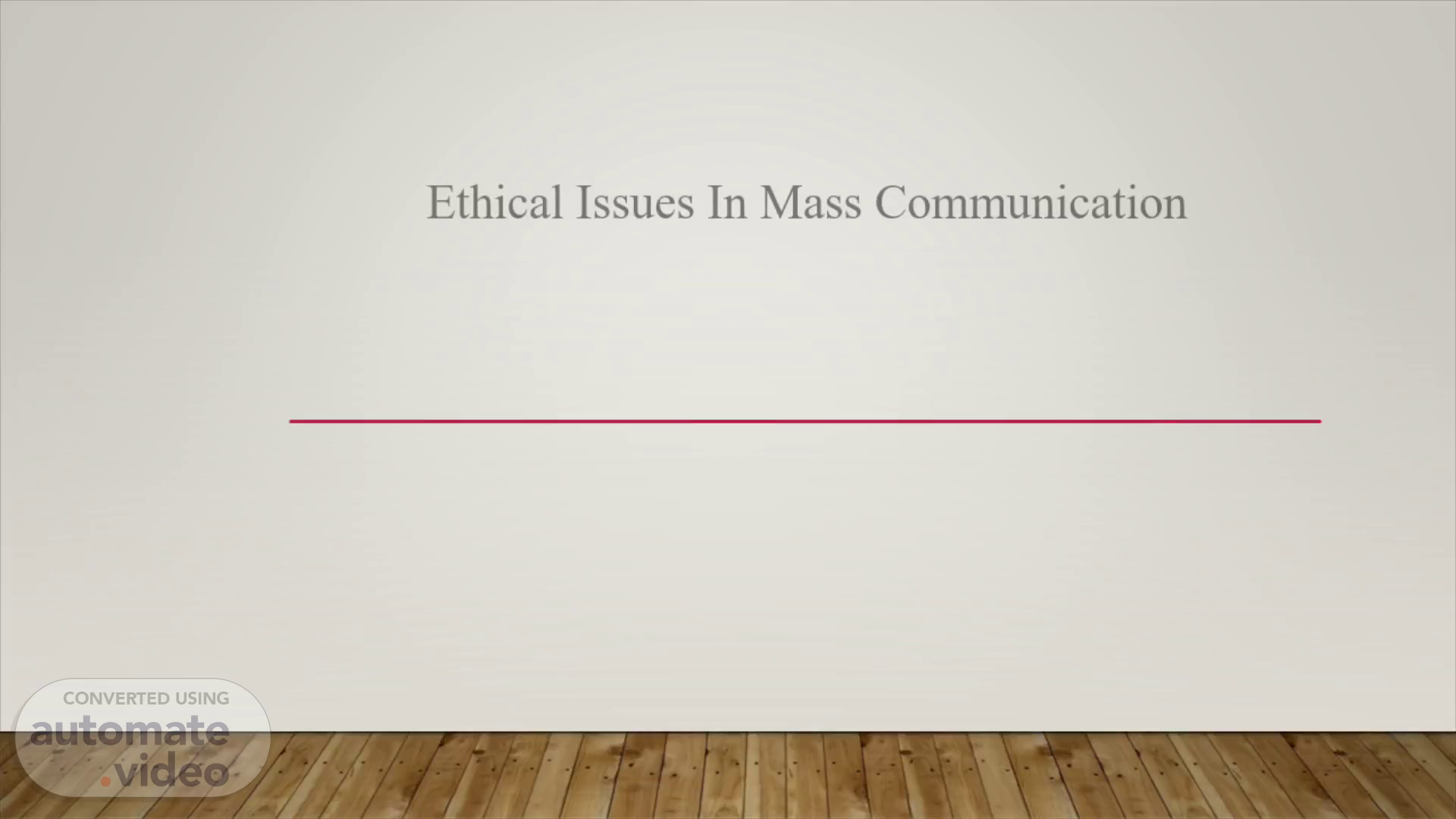
Ethical Issues In Mass Communication
Scene 1 (0s)
[Audio] Ethical Issues In Mass Communication I am Xavier Washington.
Scene 2 (7s)
[Audio] Introduction Mass media is guided by evaluating and applying moral values that are acceptable to society or culture. Ethical mass media is expected to act intelligently, not attached to one's preferences or emotions. Mass communication should consider society's interests instead of acting egoistically to incline to a person's interests. Therefore, the factor analyzed when evaluating ethical standards of mass communication is the capability to give equal weight to the interests of different individuals affected by a particular issue..
Scene 3 (46s)
[Audio] Importance of Ethics in Mass Communication Ethics help consumers of the media outlets to feel included and appreciated instead of being stereotyped. Mass communication companies maintain trust between consumers and news outlets. Ethics helps journalists tell the truth and enhance their credibility..
Scene 4 (1m 8s)
[Audio] Primary Ethical Issues in Mass Communication Truthfulness Fairness Standards of decency.
Scene 5 (1m 19s)
[Audio] Truthfulness Truthfulness is essential in mass communication. The public trusts mass media to deliver accurate information based on what they see. The public is persuaded on several important subjects in their lives through mass communication. Untruthful content misleads society and can attract ignorance and harsh actions by the government..
Scene 6 (1m 46s)
[Audio] Fairness Fairness is an ethical issue in mass communication. The mass media should not target a specific section of society with negativity and bias. Mass communication has sometimes been used as a channel to propagate racism and prejudice. Reporters should be keen when presenting information such as violence and crime to avoid generalizing a particular society..
Scene 7 (2m 14s)
[Audio] Standards of Decency People of all ages frequently have access to mass media. It is essential to take precautions to prevent adult material from contaminating children's minds. Sensitive aspects such as sex should not be covered explicitly or narrated without euphemism. Some programs should not be broadcast when children are watching TV. Since it is not possible to predict who is watching or listening to a media outlet, the content communicated should be standard and present content for people of all ages..
Scene 8 (2m 51s)
[Audio] Class Discussion What are the ethical principles that can be applied in mass communication to promote the following issues positively Truthfulness Fairness Standards of decency.
Scene 9 (3m 8s)
[Audio] Question and Answer Session Which laws are associated with mass communication ethics? What are the possible effects of false content in mass communication? What are the limitations of mass communication freedom?.
Scene 10 (3m 25s)
[Audio] Proposed Activity Search for a video that shows unethical practices in mass communication from a YouTube channel of one of the media outlets. Discuss the ethical issue(s) identified from the video..
Scene 11 (3m 40s)
[Audio] References Baranova, E. A., Anikeeva, I. G., Shiryaeva, O. V., Caselles, C. G., & Shnaider, A. A. (2022). Ethical Principles of Journalism Communication: Media Convergence as a Transforming Factor. Online J. Commun. Media Technol, 12, e202245. https://doi.org/10.30935/ojcmt/12746 Morini, F., Dörk, M., & Appelgren, E. (2023). Sensing what's new: considering ethics when using sensor data in journalistic practices. Digital Journalism, 11(3), 465-483. https://doi.org/10.1080/21670811.2022.2134161 Segijn, C. M., & Strycharz, J. (2023). The ethical ramifications of surveillance in contemporary advertising for the industry, consumers, and regulators: current issues and a future research agenda. International Journal of Advertising, 42(1), 69-77. https://doi.org/10.1080/02650487.2022.2114700.